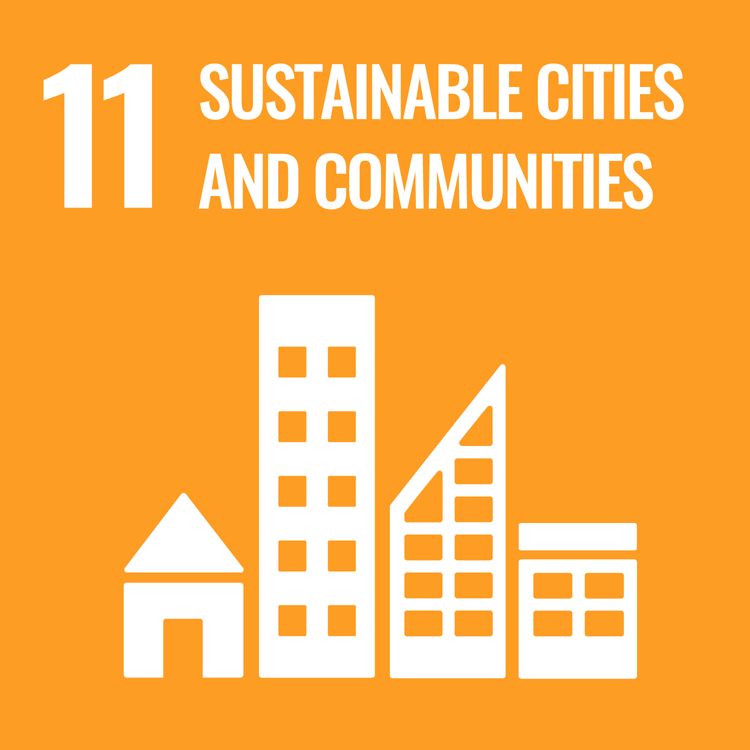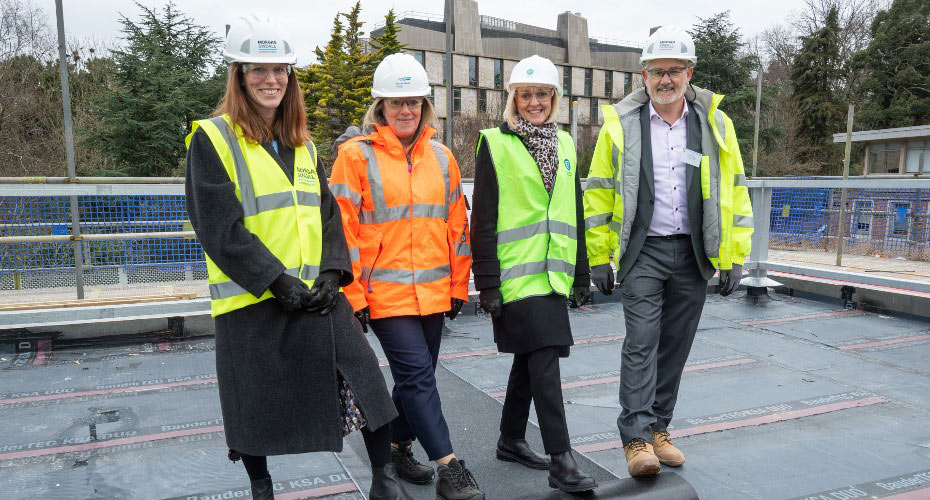Energy, water and construction
Energy action


- Powered on renewable energy since 2017 - 100% REGO certified
- 2023 REGO certificate
- First UK corporate renewable power purchase agreement, supplying 20% of the University’s electricity baseload
- Amongst leaders in the Russell Group for renewable energy generation with circa 1.5 megawatt of energy from our campus solar PV
- Potential to double our solar PV generation across University assets over the next 3-5 years
- Duryard PV Solar Project is underway
- 700 solar panels installed on Harrison Building in 2022
- More than 1700 new photovoltaic (PV) panels were added to roofs on Daphne Du Maurier, Peter Lanyon Building and the Sports Centre on Penryn Campus in 2023.
- Undertaking feasibility study for wind power opportunities at Penryn campus
- LED lighting installation - recent projects include Peter Lanyard Building, Holland Hall and the Cricket Centre
- Building Management System (BMS) - programmed to provide a comfortable environment for occupants whilst maximising our energy efficiency
- Tracking, monitoring and identifying locations where energy wastage is highest through our energy and carbon reporting management software.
- Energy mapping – the Geoffrey Pope Building has undergone extensive energy mapping, including thermal imaging assessments, to provide energy savings. You can read the full report here: Energy mapping of Geoffrey Pope Building.
A new campaign focussing on reducing our energy usage is highlighting the urgent need for us all to take responsibility in reducing our carbon footprint. Working together, we can all make small changes that collectively will make a significant difference in helping to reach our goal of net zero by 2030 as well as achieving a cost reduction in our energy use.
The ‘Small changes, BIG impact’ campaign started in January 2024 and we need everyone to get involved and start thinking about reducing your own energy usage. YOU can make a difference. This includes practical measures such as:
- switching off your computer or laptop screen when its not in use
- turning off lights when leaving a room
- unplugging unused electrical items including mobile chargers
- only using the water that you need if boiling a kettle
- taking shorter showers
- wearing extra layers
You will also see activity across our campuses to help identify where we need to take additional action. This includes investigating and resolving energy and water wastage and exploring the use of energy saving devices where appropriate. Over the next three weeks, our Sustainability team are working with South West Water to check all taps, showers and toilets in our buildings. This will help to identify water leaks and ensure these are fixed quickly. This audit will also involve assessing where it may be practical to install water saving devices. Walk-throughs of all buildings, including our student residences, will be taking place during this time and some facilities may be out of use for short periods. Students will be contacted with specific dates for room visits by engineers. If you have any questions or concerns about this activity, please contact sustainability@exeter.ac.uk
Small changes, BIG impact – changes to heating on campus
As part of the ‘Small changes, BIG impact’ campaign, the heating across our campus buildings has been reduced by one degree and we have adjusted the start and finish times of building heating by 30 minutes. These small changes will make a big impact to our energy consumption and will directly support our goal to reduce our carbon emissions and achieve net zero by 2030. These changes apply to all of our non-residential buildings.
Water

- Ranked 1st in the World for SDG 6 - Clean Water & Sanitation - in the 2023 Times Higher Education (THE) Impact Rankings
- Water reduction programme – conducting a review of current water consumption across our buildings, to inform and identify initiatives to reduce water use
- Water consumption tracking and monitoring – improving our data capture via our data management system to reduce our overall water consumption
- Read our Water Consumption Report Exeter University Campuses 2021/22 for an example – including water reuse, such as rainwater harvesting (page 2)
- Propelair project, a Horizon 2020 funded collaboration between the University of Exeter's Centre for Water Systems and Propelair, including the installation of ultra-low water use toilets which has saved over three million litres of water
- Water Resilient Policy – integrating water management and maximising water reduction
- Prioritising water conservation in our labs







